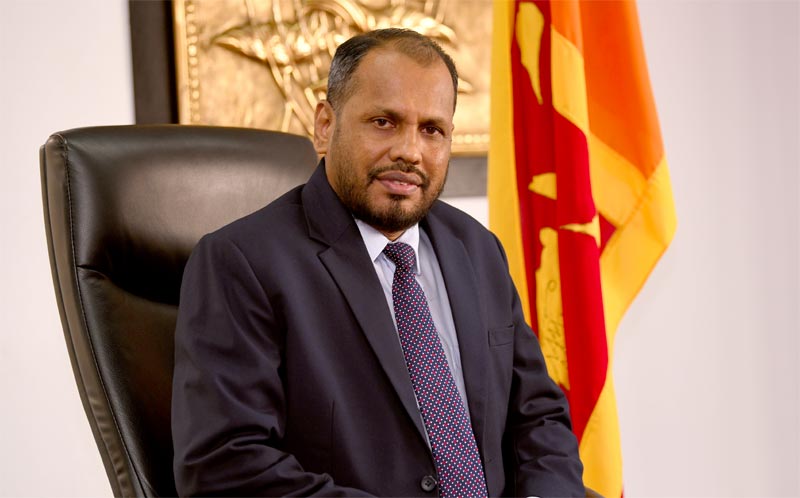Friday Feb 20, 2026
Friday Feb 20, 2026
Thursday, 7 November 2024 02:27 - - {{hitsCtrl.values.hits}}

EDB Chairman Mangala Wijesinghe
By Charumini de Silva
Sri Lanka’s ambitious $ 16 billion export target for 2024 may face challenges as the Export Development Board (EDB) observes a slower-than-expected growth trajectory.
“Exports in the first nine months of 2024 grew by 5.7% compared to the same period in 2023, achieving roughly 74% of the annual target. As global markets remain uncertain, the EDB may shift its strategy, prioritising sectors with steady demand such as textile, garments and IT/BPO services, while exporting high-potential niche markets,” EDB Chairman Mangala Wijesinghe told the Daily FT.
He said diversifying the export portfolio is essential, particularly as industrial goods such as textiles and garments continue to expand.
“The EDB sees significant potential in value-added apparel, sustainable textiles and tech-based services. The food and beverage sector also presents an opportunity, especially with global demand for organic and sustainable products rising,” he pointed out.
Wijesinghe believes Sri Lanka could expand its agricultural exports by focusing on high-margin items like value-added spices and organic food, which appeal to niche markets abroad.
The EDB Chief also pointed that it is grappling with several challenges, including an expanding trade deficit and a 1.2% year-on-year (YoY) decline in terms of trade.
“The rising costs for imports of intermediate and investment goods further complicate the trade balance, despite a $ 2.28 billion surplus in the Balance of Payment (BOP) registered as of end September,” he explained.
On the other hand, he said the foreign investments in the Colombo Stock Exchange (CSE) and increased official reserves, now standing at $ 6 billion, offer a buffer against external pressures.
“An appreciating rupee helps curb import costs, but may reduce export competitiveness, as evidenced by the 72.6 REER index recorded in September,” he opined.
Wijesinghe outlined that the EDB has also engaged in comprehensive discussions with exporters across gems and jewellery, IT and spices sectors, exploring specific challenges and strategies for growth.
“Exporters highlighted a pressing need for support with regulatory easing, digitisation and logistics to counter rising import costs and navigate international markets. In response, the EDB is now working to simplify procedures and provide enhanced market intelligence,” he added.
The EDB Chief described that supporting SMEs, women-led exporters and youth entrepreneurs remains a cornerstone of the institute’s mission. “Through initiatives like Women Lead Exports, the EDB aims to boost women’s participation in international trade by offering support for product development, market expansion and capacity building. At present, over 474 women entrepreneurs are enrolled in the program, receiving guidance on business planning, export packaging, pricing and market access,” he said.
With help from partners such as Germany’s Import Promotion Desk and International Trade Centre (ITC), he said the EDB provides essential mentorship, technical training and access to credit, building an inclusive export ecosystem.
Despite external economic pressures, Wijesinghe expressed his optimism about the resilience of the exporters and assured commitment of the EDB in supporting a sustainable sector through digital transformation, regulatory simplification and extending targeted support for critical industries, aiming to build a stable economic foundation for the country.